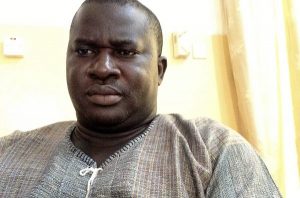By Njundu Drammeh
What has gone wrong? Fifteen months ago, people who were on the same side fighting dictatorship, tyranny, oppression and state high handedness are now apparently divided or polarised, engaged in open hostility here and in proxy war or shadow boxing there, disagreeing on the core human rights issues they had unanimity on and which galvanised them once upon a time. What has changed? What has gone wrong? Or it is just different perspective or horizon?

There is contention over the efficacy of an approach that precipitated the downfall of the Jammeh regime, protest; one which was a human right but unprotected that time by the rule of law. “We now have a democracy and people who are aggrieved should seize the courts with their issues” is the voice that is ringing from the other end. “When has protest become hateful and wrong? The tool that gave us our democracy”, thundered the other voice. People who once agreed that protest is legitimate, even if illegal at the time, now seem to have diametrically opposite appreciation of the same. What has gone wrong? Similar approach but different environments? What?
We all want a great Gambia. May be what we have not agreed on is how do we get the great Gambia? How do we bring about that change? What conditions must exist, non-negotiable, for that greatness to happen?
Is it possible to find each other, even in our disagreements, and succeed in developing a path which can lead to the “common good”?
Those who have struggled for “larger freedom” must not be seen to be constricting that space for each other. Our striving aren’t separate or mutually exclusive or irreconcilably antagonistic- they support and balance each other. We must deepen our conversations, interrogate the issues that can hamper our collective progress and prosperity, identify the flashpoints and strategize together for the common good.
“Politicians and businesspeople are key to the development of society. But when it comes to the significant questions of our age, like dealing with rampant inequality and climate change, politicians and businesspeople cannot be trusted, on their own, to take sufficient action, even in their own long term interest. They are often too caught up in narrow, self interested economic and political systems that are governed by short term profit and 2 to 3 year election cycle. We need them to be incorruptible and far sighted. Who will help them to become so?”
Well…. in the above quote is a role cut out for active citizenship and citizenry. We can work together, as citizens, not political party supporters or activists, through the development of deep democracy and larger freedom, governed by the principles of dignity, accountability, equality and mutuality.
We all want to bring change to our Gambia, change that is positive, meaningful, impactful and sustainability. But we cannot unless we agree on certain core values, on certain key drivers which are prerequisite for our development. We can disagree but agree to surrender the personal for the common good, based on the core values of human rights, democracy and good governance.
For a start we must get rid of the notion that those who stand up for human rights and dignity are “saboteurs” just as we must cast off the belief that those who support the government are “enemies” of the people. The bell tolls for everyone of us.
It is a paradox when oppressed of the past no longer see eye to eye on core human rights issues around which they once banded….
The road is made by walking
